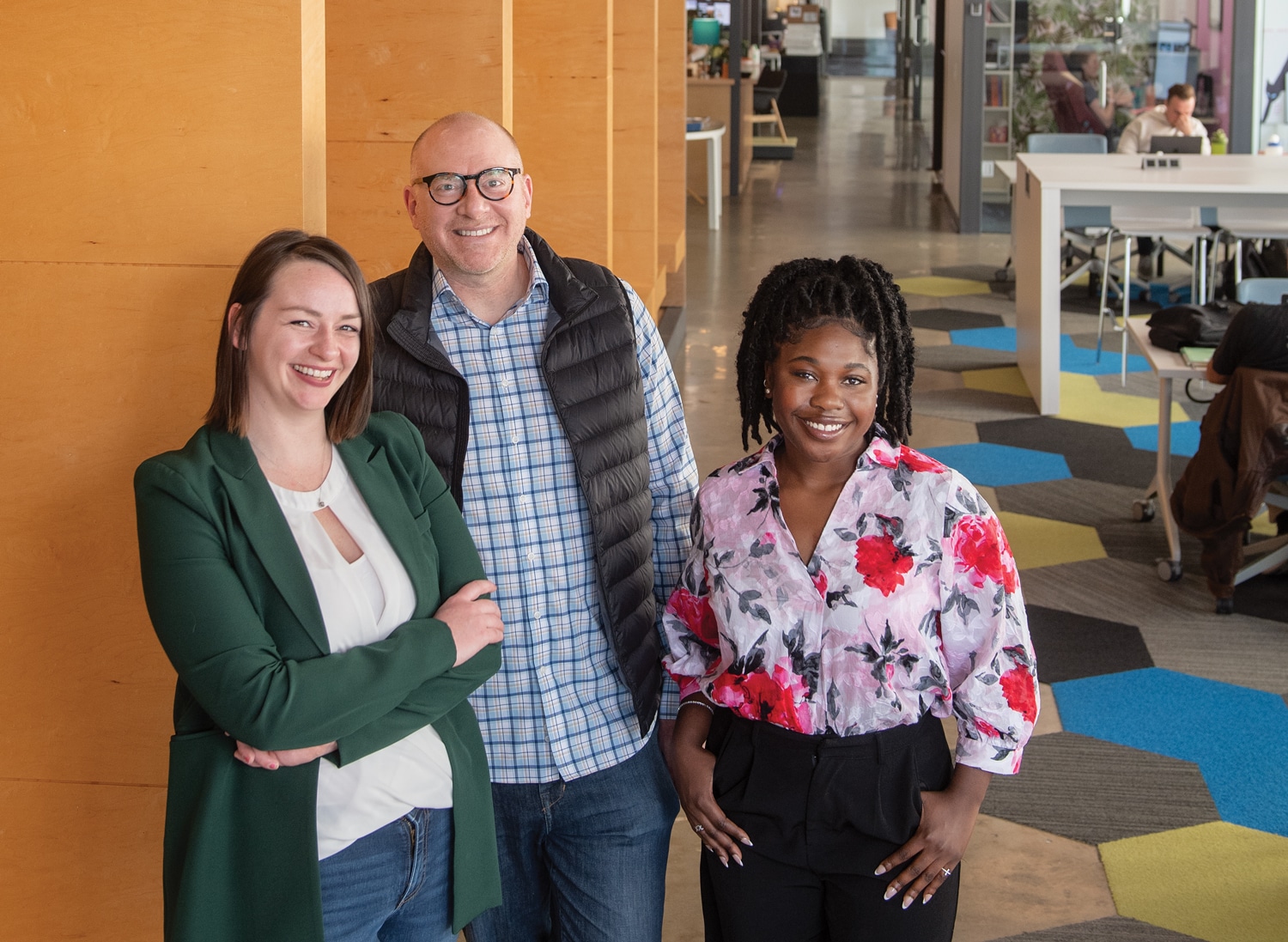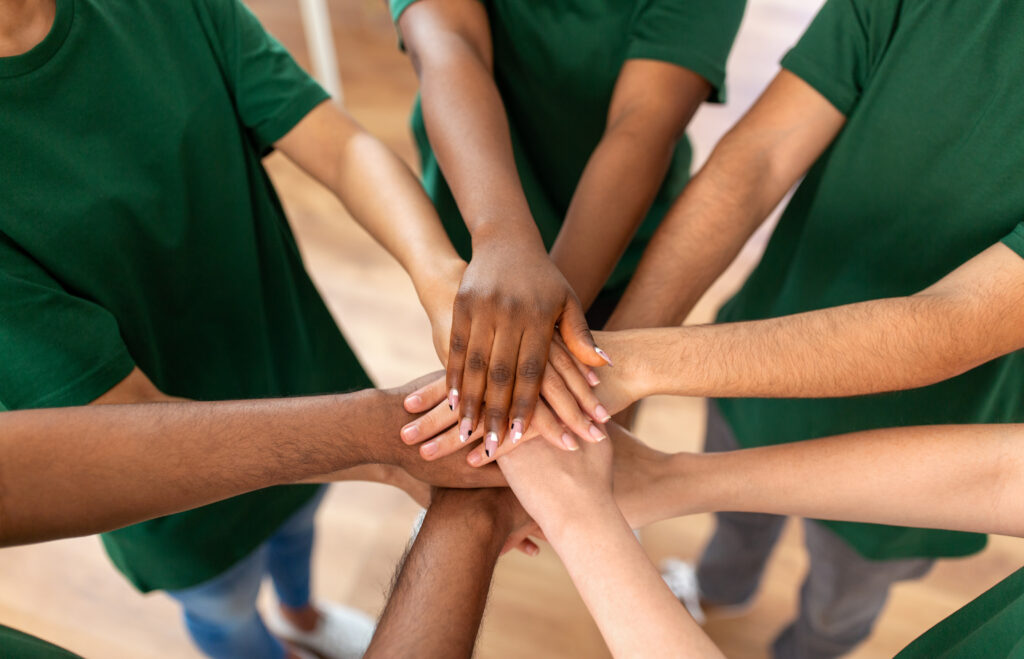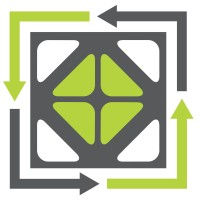A new era for events
Des Moines entrepreneurial community sees in-person events evolve, adjust to hybrid world four years on from the pandemic

Sarah Diehn Apr 19, 2024 | 6:00 am
9 min read time
2,200 wordsAll Latest News, Business Record Insider, Innovation and EntrepreneurshipTechstars Startup Weekend events are naturally brimming with lively energy and fast-paced activity as teams who are often strangers at the start work together to rapidly validate and develop ideas to pitch to a panel of judges over the course of a weekend.
For the Startup Weekend DSM hosted in January, the first in Des Moines in seven years, a blizzard and extreme cold also entered the mix, adding its own layer of excitement as well as uncertainty to the weekend.
The event’s local volunteer organizers, Colleen Kinsey, Brandon Rockow, Sandrah Nasimiyu and Mitchell Kabenda, executed a pivot to hybrid days before the event, making changes with caterers, altering the schedule and setting up technology for virtual attendees.
Kinsey said her chief concern was the weather whittling in-person attendance down to few or none, but that’s not what she found when she pulled into Maple Studios on Saturday morning.
“I get there right before 8 a.m. and there are cars waiting in the parking lot to get in,” Kinsey said. “I grab a shovel and start shoveling the snow drifts because you cannot open the door to get in.”
She said everyone banded together to support the organizers through the transition to hybrid, and she felt the additional effort required to be present reinforced participants’ dedication and appreciation of the opportunity.
Reflecting on a strong response to the event and their current pulse on Des Moines’ entrepreneurial events, Kinsey and Rockow told the Business Record they have picked up on a greater desire in the community to connect and engage in person.
“How I realized it was individuals coming up to me and appreciating me and thanking me and telling me what they did to get here,” Kinsey said.
The COVID-19 pandemic is feeling more like a distant memory to many, but the abrupt halt in connections and momentum event organizers had built still has lingering effects as existing events make their way back and new ones start.
In the years since the pandemic, a batch of new meetups and recurring events have come on the scene, including web3dsm, Hardware Hangout, Women in Tech Happy Hour, AI Iowa and the Angel Investor Summit and Entrepreneur Field Days from the Greater Des Moines Partnership.
A few new events recently announced are the Latina Business Excellence Summit, a conference founded by a group of local Latina entrepreneurs, as well as the “Made in Iowa” series hosted by the Iowa Center for Economic Success highlighting the impact of small businesses on Iowa’s economy.
Events, both returned and new, are operating in a new era that follows the introduction of virtual events and rise of hybrid work as well as a new generation of organizers stepping up to provide leadership in Des Moines’ entrepreneurial community.
Evolving events for hybrid work and life
When it was safer to hold in-person events again, the world had seen a slew of changes in just around a year, particularly in what was important to people about how they live and work. Event organizers had to understand and reflect those lifestyle changes for events to be successful.
Some area chamber organizations shared in emailed responses how their events for small businesses have evolved since transitioning back to in person.
Melisa Cox, president and CEO of the Ankeny Area Chamber of Commerce, started in the role in 2022, the same year the chamber returned to holding all events in person. She said the return initially caused a spike in attendance.
“People just wanted to get out and about and get back to what they felt was ‘normal,’” Cox wrote to the Business Record. “[Attendance] has still been positive but you can see it level off a little bit.”
For small businesses, the Ankeny chamber is focusing on creating experiences that get people into storefronts, like a shop hop event touring local businesses for food, drink and shopping, she said.
The Greater Des Moines Partnership began emphasizing in-person attendance at its events in 2023 after supporting hybrid options in 2021 and 2022, according to responses provided by Emily McLain, regional affiliates and member support manager, and Diana Wright, startup community builder.
One of its takeaways following the pandemic has been keeping virtual events in the mix when it provides a benefit.
“There are some programs that have actually worked better for small business owners and entrepreneurs as virtual, most notably our Top Five for Small Business series. This allows busy business owners and entrepreneurs to spend an hour of their day learning and is easier to block off than spending in some cases an hour or more traveling,” McLain and Wright wrote.
But a significant, and new, piece of today’s event landscape is the element of choice. The introduction of fully virtual and hybrid events during the pandemic created more decisions for entrepreneurs and others — choosing which events to go to and if they’ll attend in person or virtually.
“One thing we have learned is that intentionality is important when it comes to a busy entrepreneur or small business owner deciding how to spend their time,” McLain and Wright wrote.
The people who became entrepreneurs during the pandemic would have started their businesses without the culture of in-person connections and community, which could affect how they view in-person events now, said Ben McDougal, Midwest regional representative for the weekly entrepreneurship event 1 Million Cups and a volunteer organizer for web3dsm, a community group exploring web3 topics.
“That’s an interesting thing — the fact that a lot of people built their company not feeling as though there was value or a need to be in such an environment, so as you return back, maybe that continues to linger in some of these founders’ minds of not needing or understanding, perhaps, the opportunity that community provides,” McDougal said.
These changes mean that ensuring attendees know what value events offer is more important than before.
Nasimiyu, one of the organizers for Startup Weekend DSM who has experience with brand development and social media, helped promote and articulate the event both before and after the switch to hybrid.
Startup Weekend is meant to appeal to a wide audience, including college and high school students, so sharing the value meant connecting in person in addition to getting the word out through newsletters and social media.
“We forget that word of mouth travels just as well and as fast at times; you just don’t have the impressions to see that,” Nasimiyu said.
The organizing team visited other in-person events to talk about Startup Weekend and hosted casual meet and greets so prospective attendees could get to know the team ahead of time. Nasimiyu said having micro events like the meet and greets is a way to help people feel comfortable with an organization leading up to a bigger event.
When the unplanned switch to hybrid happened, she emphasized the need to ensure virtual attendees still felt connected. She said her interest in more in-person events as an entrepreneur is influenced by her experience as a college student during the pandemic and the disengagement she felt.
“[Virtual events] are very convenient and allow for more people to attend, but it also doesn’t have as much of a joy or excitement to it the way that an in-person event does,” she said.
Nasimiyu is the creative director of Nasimiyu Studios, a creative agency she runs on the side of her full-time job. For her, she knows what she’s expecting from an event when she commits to going in person.
“Have you ever scheduled yourself to go, to a virtual event and then you don’t go and you don’t feel as bad about it?” she said. “If I see an in-person event and I say I want to go it’s because they have something that I think could be a good offer or something that could really be useful to me.”
Another draw for in-person events is the chance of an entrepreneur making a connection or learning something they didn’t expect initially.
“All of us feel that heavy ‘no, I don’t want to do that,’ but in those moments when you say yes, it’s interesting how the universe rewards you,” McDougal said.
Leaders of new, returning events work to fill needs in ecosystem
This new era for events influenced by the pandemic is also opening up opportunities for new leaders to step forward and gather different segments of the entrepreneurial community.
The snowy January event was the first in-person Startup Weekend that Des Moines had seen in seven years. Rockow said as events emerge and evolve following the pandemic, they’re even more beneficial when they can address gaps in the ecosystem.
“I felt like we were ready for a return of this event to Des Moines. … There are more and more events, and more and more people are going to these events, but we knew there was this gap for people wanting to work at the idea stage to lay the foundation of a business. That didn’t really exist in the Des Moines market,” Rockow said.
Andrew Kirpalani, who previously led organizing for Startup Weekend in Des Moines, said events need a regular refresh in leadership.
“I’m really glad to see somebody else pick it back up,” Kirpalani said. “I met with them some times and gave them some advice and [I’m] happy to be a resource, but I don’t think I’m the guy to take it back over. I think it needs new people year over year, and I hope what they can do is, they’ve run one event, maybe they run two, three, four of them, and they’re kind of bringing up their next generation.”
Kinsey and Rockow, who both work as entrepreneurs, said that right after this year’s event, new organizers were coming up to them to volunteer for the 2025 Startup Weekend DSM.
Rockow said, “I hope that there’s some sort of legacy here for a zero-to-one or idea-to-business-type event here in Des Moines, whether we’re involved — ”
“ — or it’s the next person. We’re just getting the ball rolling,” Kinsey said.
Another group filling a need in the ecosystem is Hardware Hangout, a meetup organized by Bailey Steinfadt, owner of Stone Path Engineering, and William Griffin, senior and lead engineer at DISTek Integration Inc.
Griffin said he and Steinfadt stepped up because the people who “write software that works with hardware or create hardware that needs software to control it” are a big portion of the tech community but don’t currently have many opportunities to come together in person.
The community is spread across such companies as John Deere, Vermeer and Pella as well as a lot of smaller companies, so “it feels like a bunch of islands,” Steinfadt said.
“There’s a lot of different names for the job you can do or the role you can hold while doing stuff with hardware, so that’s part of it,” she said.
Attendance at the first two events in November 2023 and February proved this type of group was wanted. Steinfadt and Griffin were hoping for at least 10 to 20 attendees and got more than 40 both times. They’re now workshopping how to brand the events so everyone in the community knows they’re welcome.
“We’re trying to leave it as open as possible and then just telling everybody we know in these closely related but not exactly identical places, ‘You’re welcome [to] come,’” Steinfadt said.
Griffin, who moved to Des Moines from Texas, said there was a striking difference in the openness of the tech community that helped open the door to starting Hardware Hangout.
“In Texas, I just didn’t feel like there was a lot of sense of community and people weren’t that interested in meeting me,” Griffin said. “There’s a tech community, but they weren’t really open to those of us who work in this software that works with hardware space. … Coming to Des Moines, it was just such a better community and better social environment.”
A goal for Hardware Hangout is to strengthen Des Moines’ device ecosystem and address gaps for those building hardware.
Steinfadt learned about the medical device ecosystem in Minneapolis while working remotely for a company there. She sees an opportunity to create a network built around Iowa’s agriculture and manufacturing industries.
“There was a whole network of people doing medical device stuff up in Minneapolis,” she said. “But down here, somebody says, ‘I have a device I want to build, I’m prototyping.’ That ecosystem isn’t there to go, ‘All right, so you’re going to need these 15 different things between raising money and going to production.’”
She is working with Maple Studios to create a step-by-step road map to bringing a hardware product to market in Iowa even though not all the resources are available within the state. Gathering the hardware community through Hardware Hangout has helped Steinfadt learn more about gaps from those who experience them.
“We don’t know what those gaps are yet, because, again, everybody seems to be islanded,” she said. “I still don’t know how many pick-and-place machines are in the city, but I know of a lot more of them now than I did before.”

Sarah Diehn
Sarah Diehn is editor at Business Record. She covers innovation and entrepreneurship, manufacturing, insurance, and energy.











